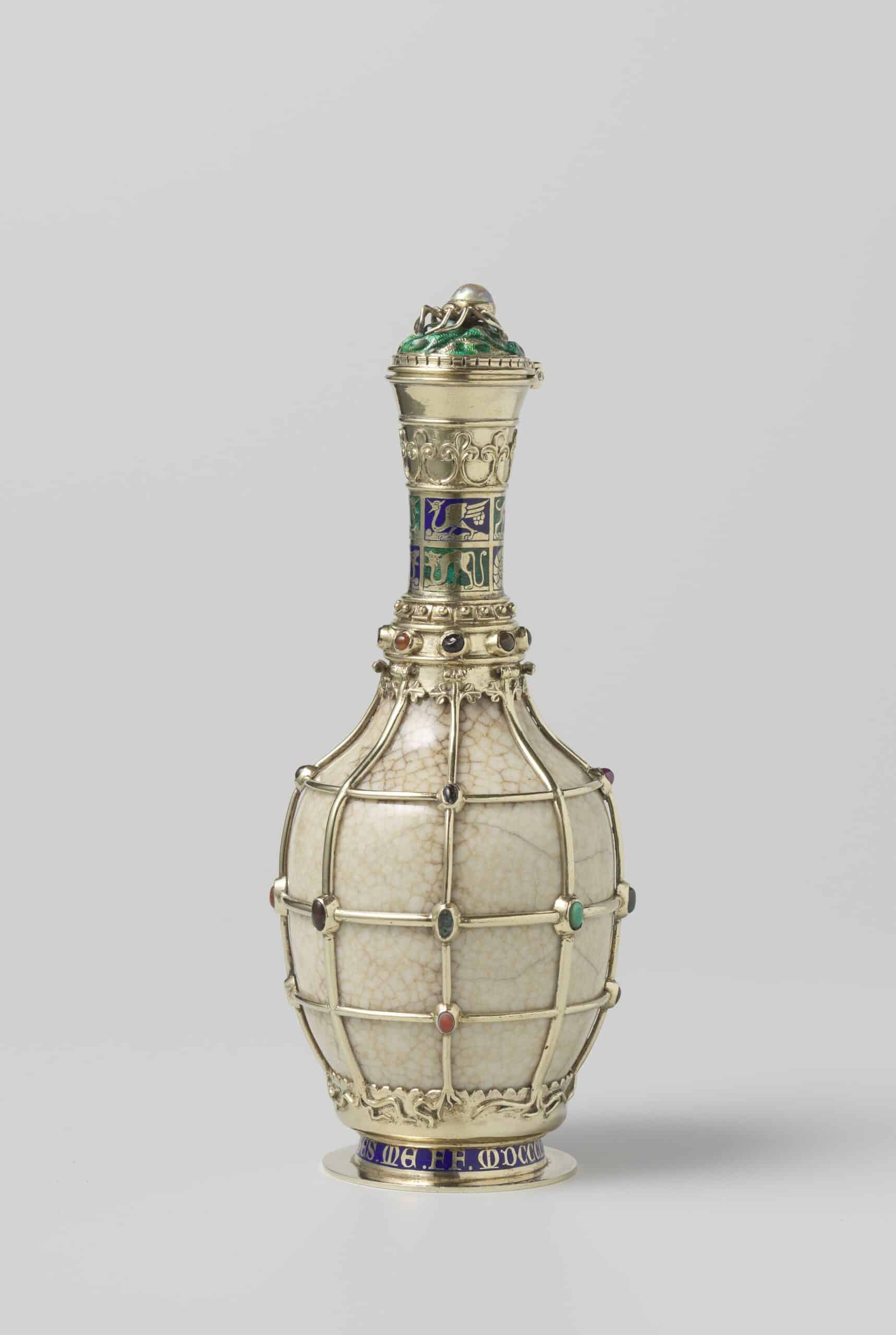Sixtine Bérard: your search – “william burges” + “people behind william burges” – did not match any documents
Eighteen young writers from Flanders and the Netherlands have brought nineteenth-century artefacts from the Rijksmuseum to life. They wrote their stories in response to the question: what do you see when you look at these objects through the lens of impending doom? Sixtine Bérard wrote a poem to accompany a flask. ‘I crack open the display case/ and catch the ample blue.’
 Flask, Anonymous, 1868
Flask, Anonymous, 1868© Rijksmuseum Collection, Amsterdam
your search – "william burges" + "people behind william burges" – did not match any documents
***
rich people in versailles sought to combat unpleasant odours by dowsing themselves in perfume and likewise drove out the sour smog of battlefield bulletins with beds of roses.
I’m not free from stink as writers, too, put up smokescreens: we have no choice but to correct dross into aesthetically pleasing lines to squeeze them into our poetics.
amongst the rubble of epistemological might on Google Scholar I read that
‘the fusion of styles is overpowering and completely his own’
and the web page smells of vanilla.
eight years after the opium wars william burges stole the chinese technique for creating porcelain crackle. if you ask the bed of roses, william cooked up his own style not by stealing the technique but by owning
it.
william had the flask manufactured by ‘anonymous’ but carved only his own name on the base.
the following text is fiction but a story that mentions only the names passed down to us
is also a fabrication.
***
people describe william as eccentric,
people forget that Sybil has to polish the skirting boards after his excesses,
people forget Sybil.
before she left, Sybil snatched a flask filled to the brim with the fragrance of wild roses,
strong and spicy,
stripped of subtlety as purposely casual things always are.
after clamming up at home she emptied the bottle on her porch,
and now the cloying scent will not be washed away,
for lack of rain and running water.
she decides to create gardens amongst the cobbles of her arid street,
but the porcelain flask keeps crackling
and Sybil fears that the depleted soil will soon break open too.
in september 1871, when the stench of rotten string beans wafted from the ground,
because the street had stayed bone-dry,
Sybil tossed the flask in the air because she wanted a new perspective on things.
she let the flask bounce off her low and hateful ceiling,
whereupon the floor was strewn with shards and rocks and
only the lattice remained, the grip that held the wealth.
in november 2022 neon light washes over the flask,
in this place too the masses go unnamed,
so I crack open the display case
and catch the ample blue
and attempt a decent throw
and using the delicate shards I draw all the Sybils
emerging from the shadow of the flask
and leave you to invent the rest.












